World-class expertise leading the way to benefit the equine industry
Renowned for its innovative studies, Texas A&M strives to be at the forefront of discovery in equine sciences. Faculty in both the Department of Animal Science and Department of Large Animal and Clinical Sciences are committed to serving Texas and beyond through vital, basic, and applied research.
Through state-of-the-art facilities and internal & external collaborations, Texas A&M is developing new technologies and practices that are transforming the industry.
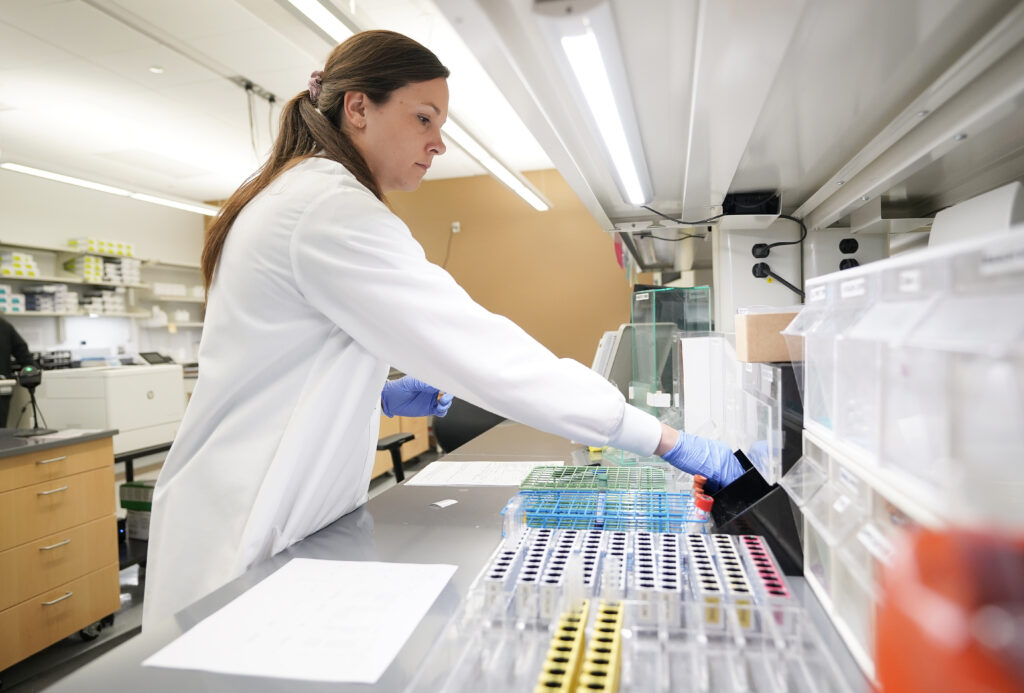
Institute Supported Research
Texas A&M AgriLife Research has funding available within the Institute for Equine Sciences to award eligible faculty to support/promote equine science research topics relative to supporting equine health, wellness, welfare, performance and the over vitality of the Texas, U.S., and global equine industry.
Subjects might include equine welfare, disease management, nutrition and metabolic physiology, reproductive physiology, growth and development, equine animal breeding and genetics, sports medicine and performance, equine behavior, training, and/or human animal bond, or other novel subjects supportive of the equine industry and its owners.
-
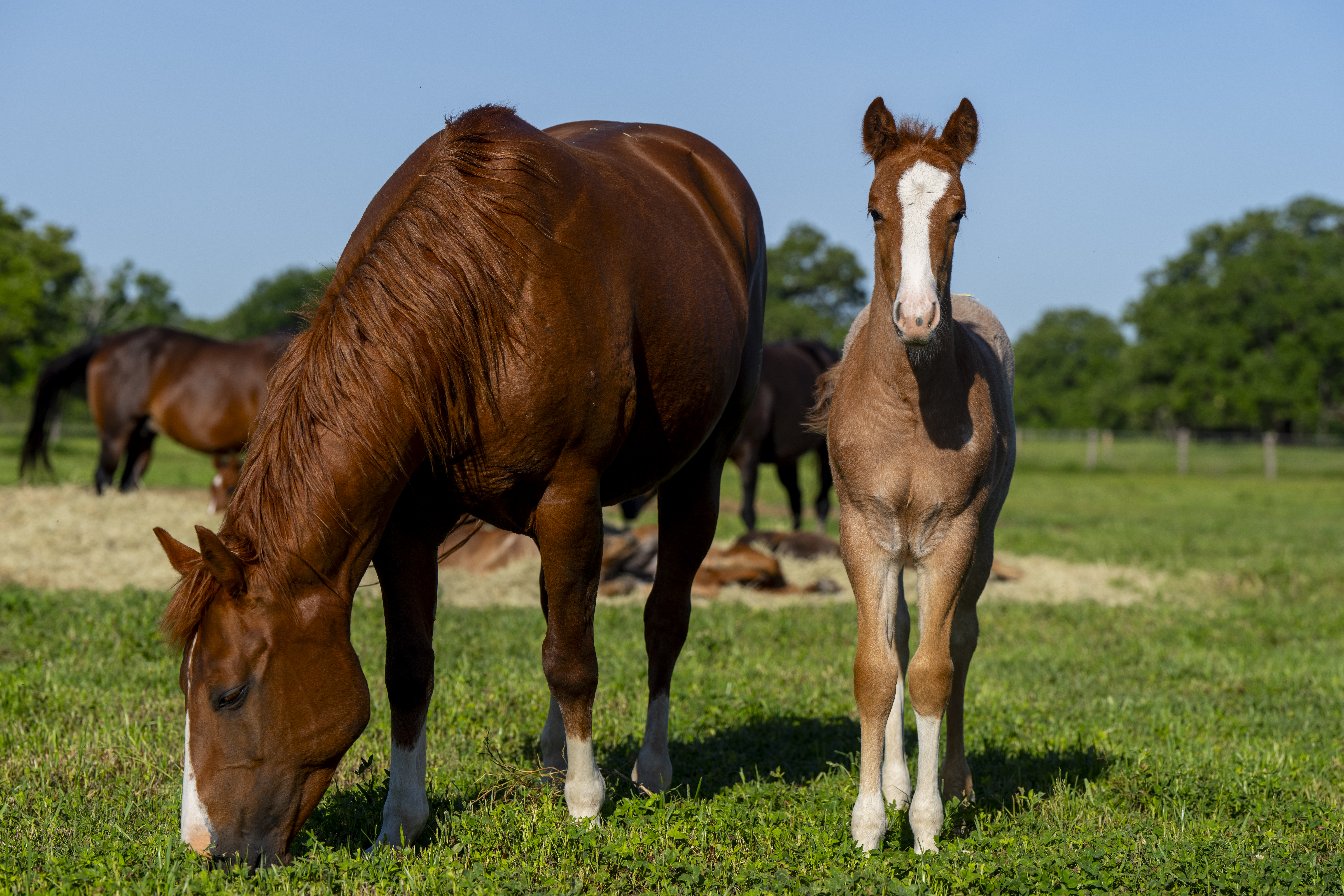
Immunogenicity of a mRNA vaccine for Rhodococcal Foal Pneumonia
-

Straining for Answers: Target-Enriched Metagenomics to Decipher Strain-Level Streptococcus equi Dynamics in Equine Health
-
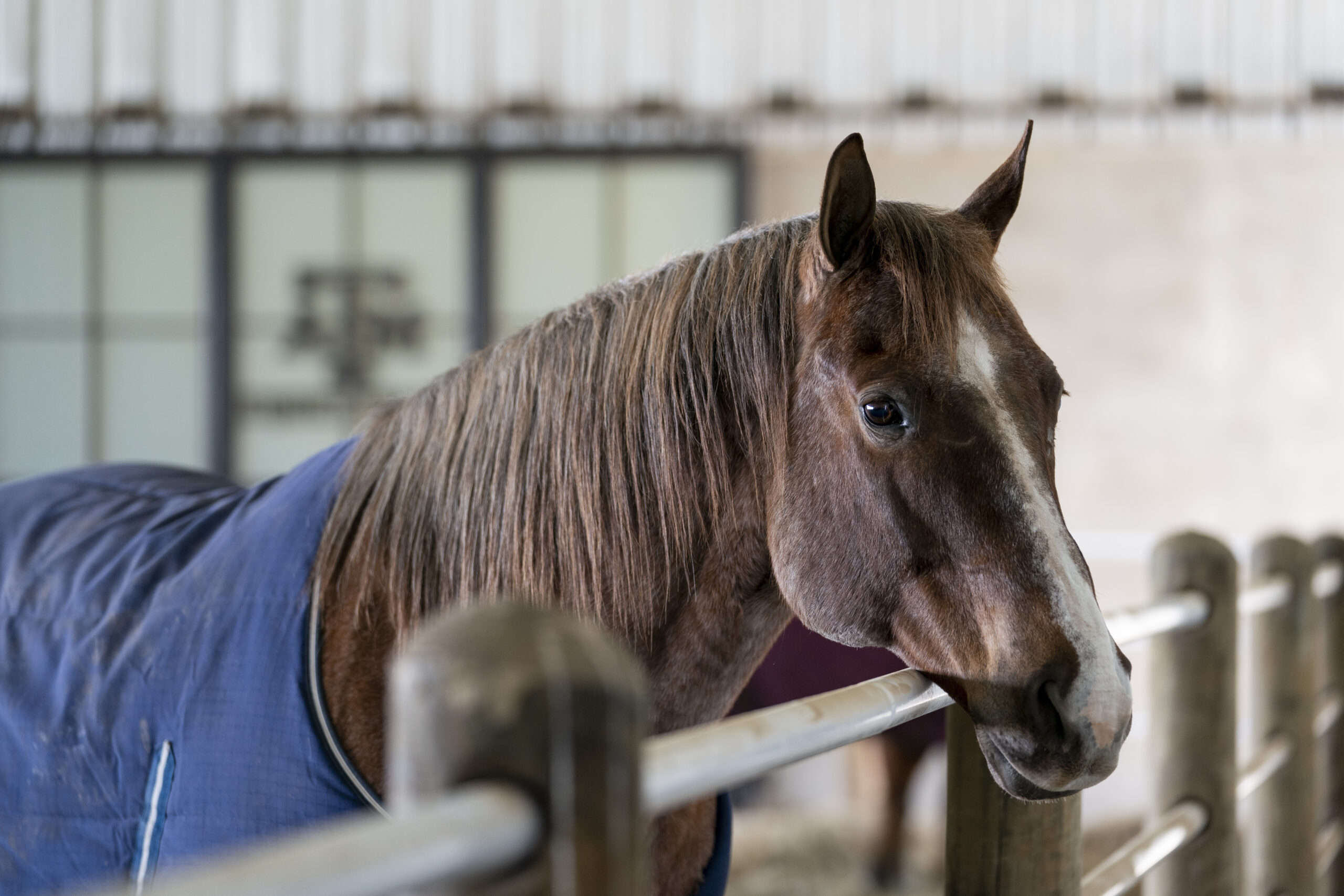
Validating a Non-Contact Continuous Cardiopulmonary Monitor in Adult Horses
-

Disrupting the Circadian Clock: Impacts on Equine Metabolic Health and Disease
-
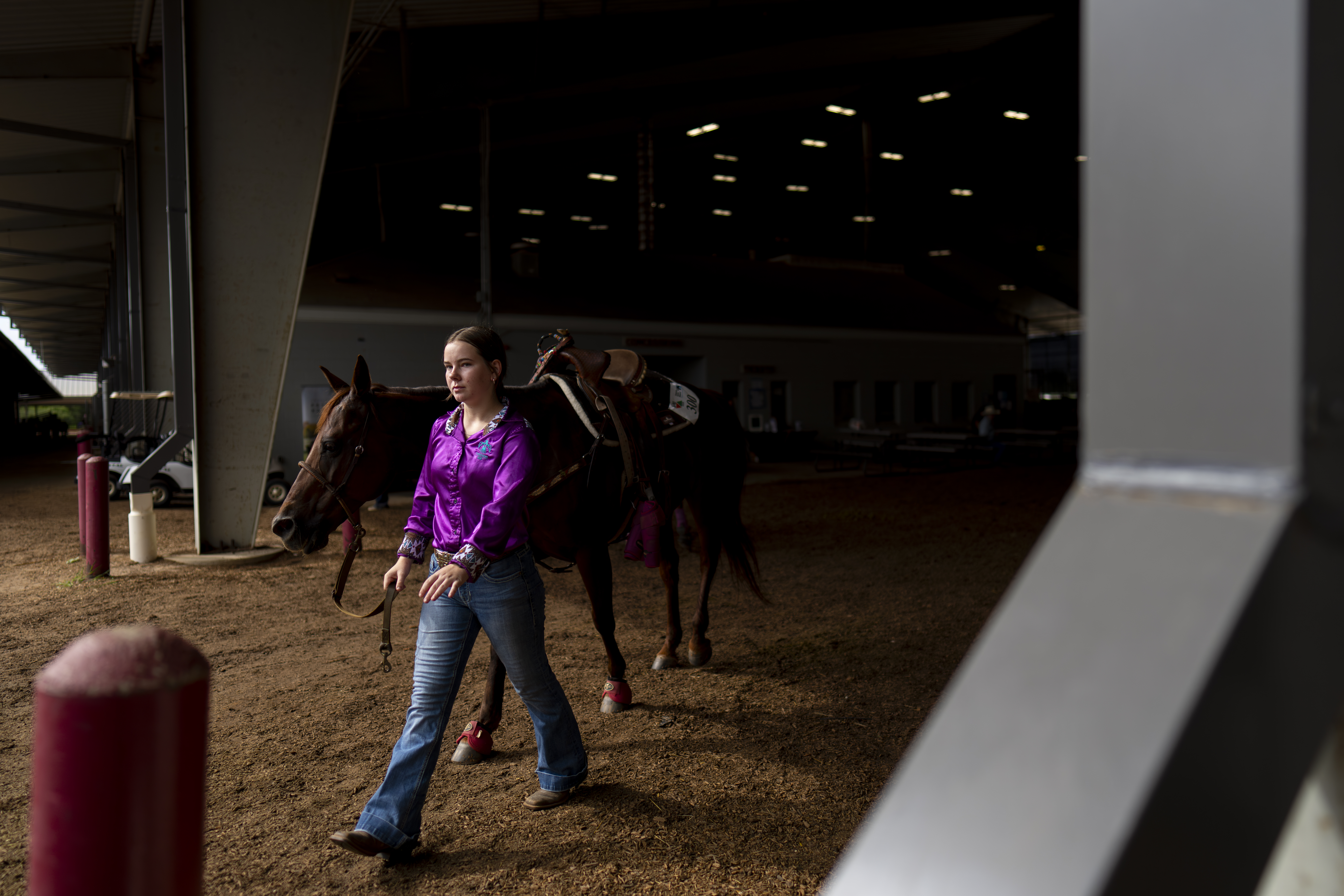
Identifying novel biomarkers predictive of fatigue to reduce injury in exercising
-

Examining Dopamine Regulation of Insulin Secretion in Equine Health and Disease
-
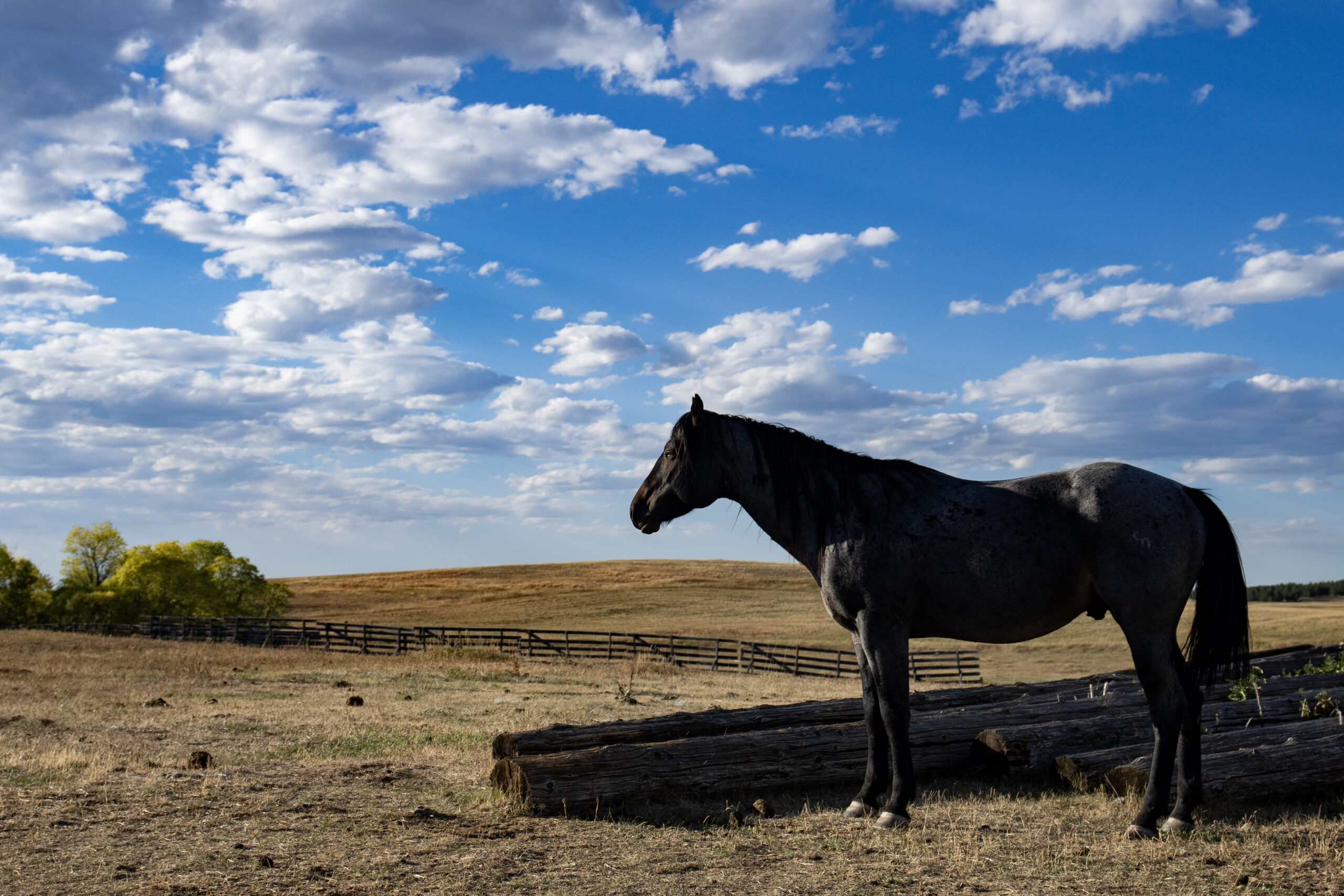
The effect of flow cytometry-based sex sorting on the proteome of stallion sperm, as determined by data-independent acquisition mass spectrometry (DIA-MS)
-
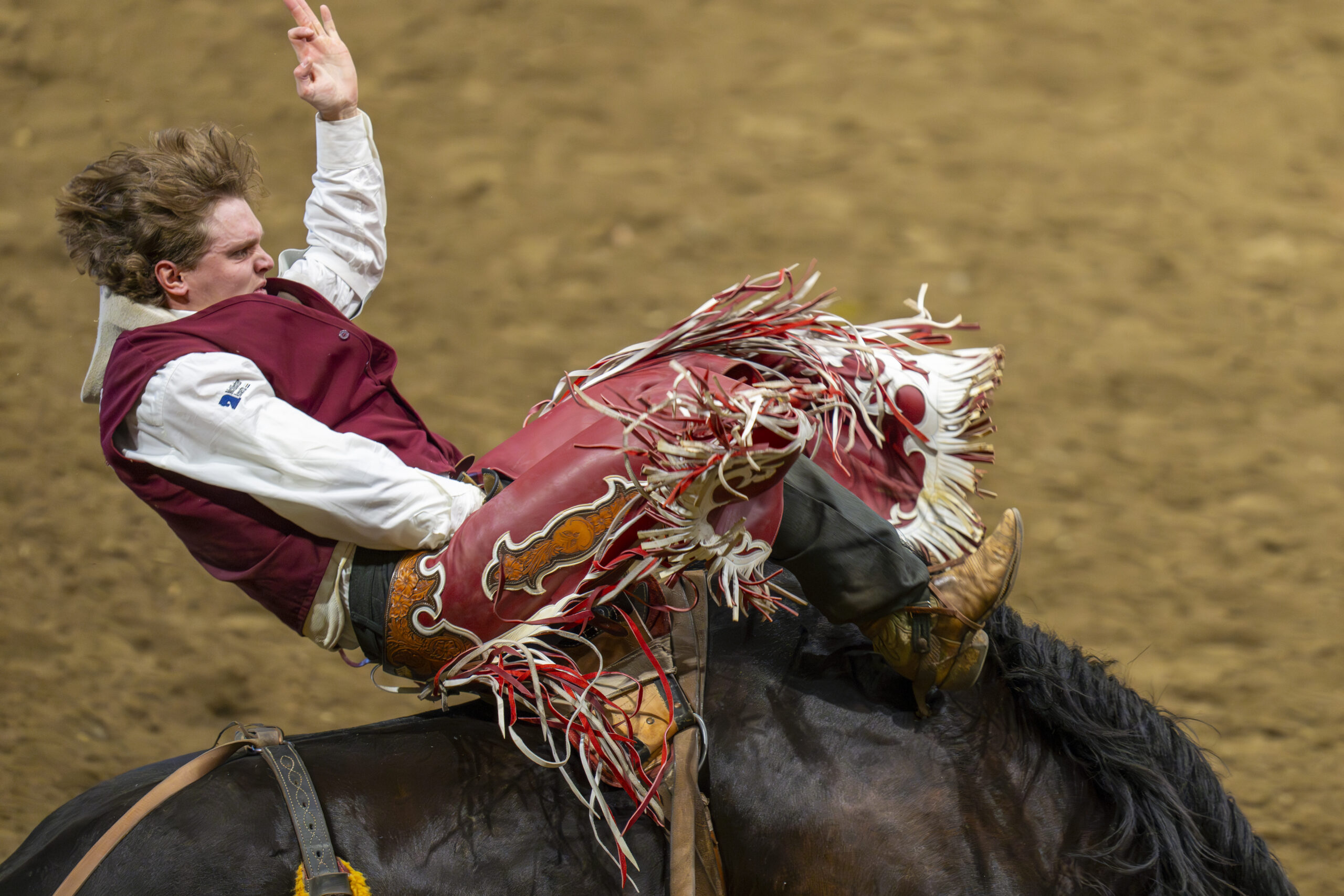
Impact of collegiate rodeo bronc riding practice and competition on rider and horse salivary cortisol, alpha amylase, and cardiovascular parameters
-
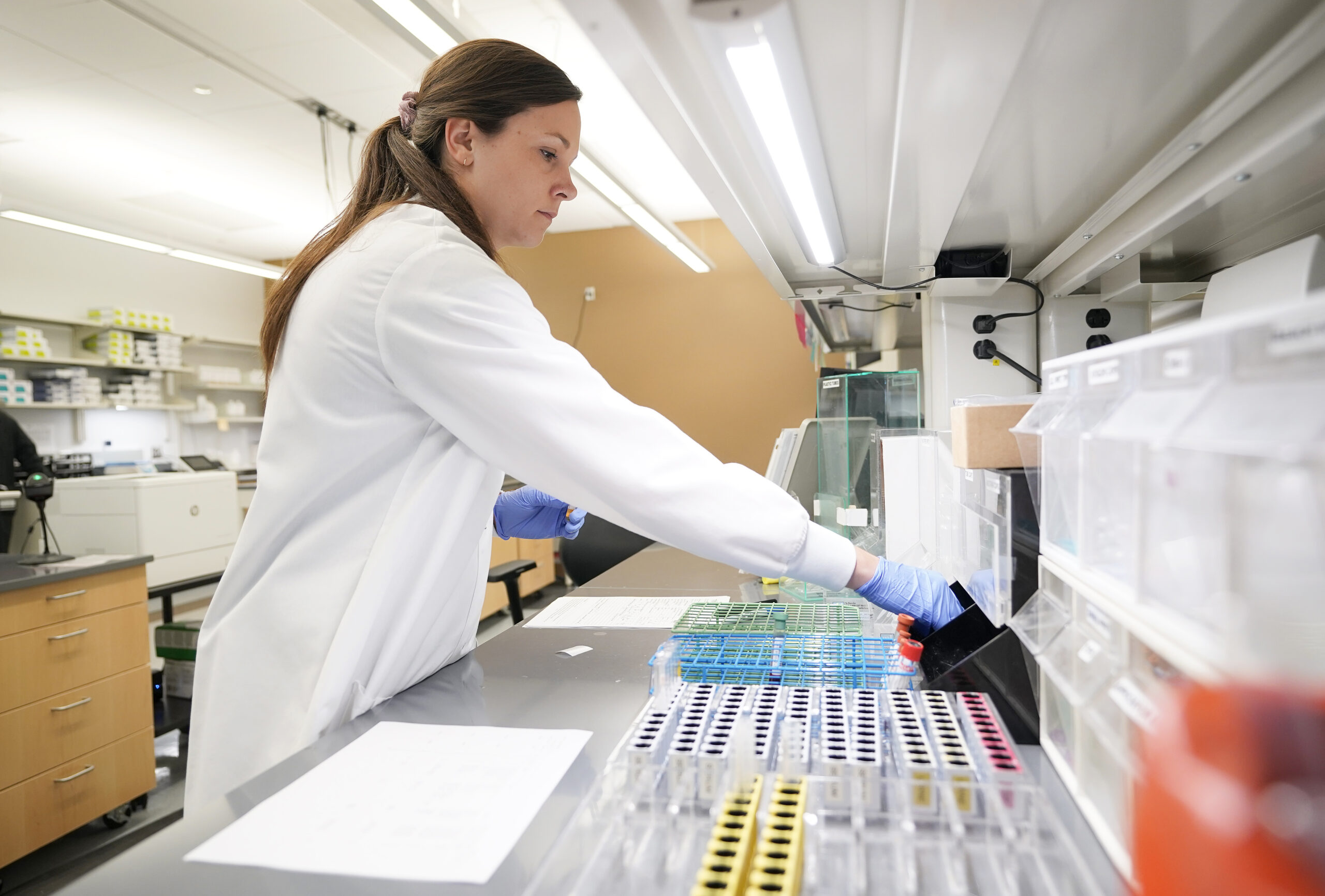
Evaluating Strangles Vaccine Candidates Using a Mouse Model
-
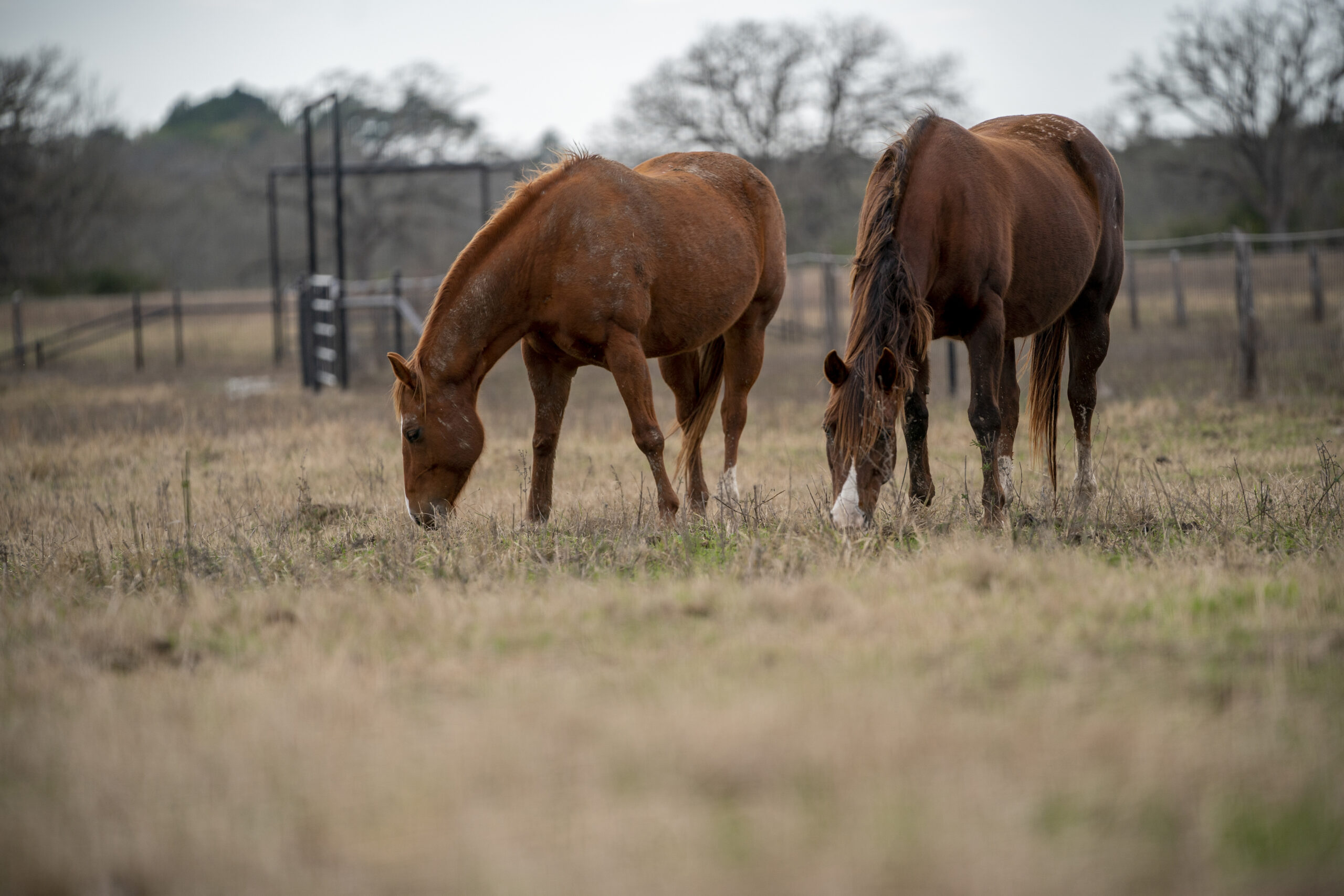
Effects of biophosphate administration on synovial metabolome of juvenile horses challenged with intra-articular lipopolysaccharide
-

Complement in Rhodococcal Infections
-
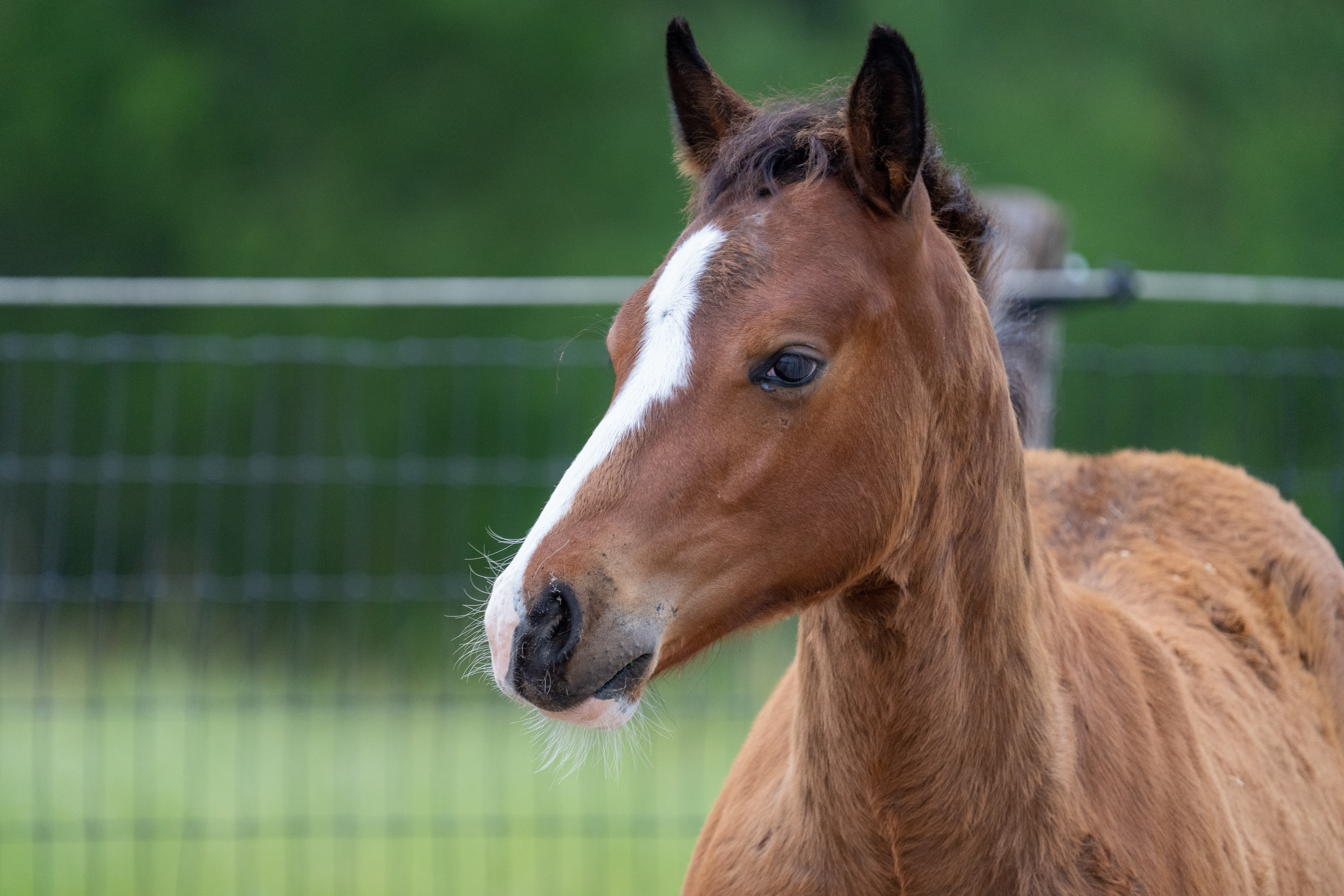
Elucidating the circadian-inflammation relationship in young horses
-
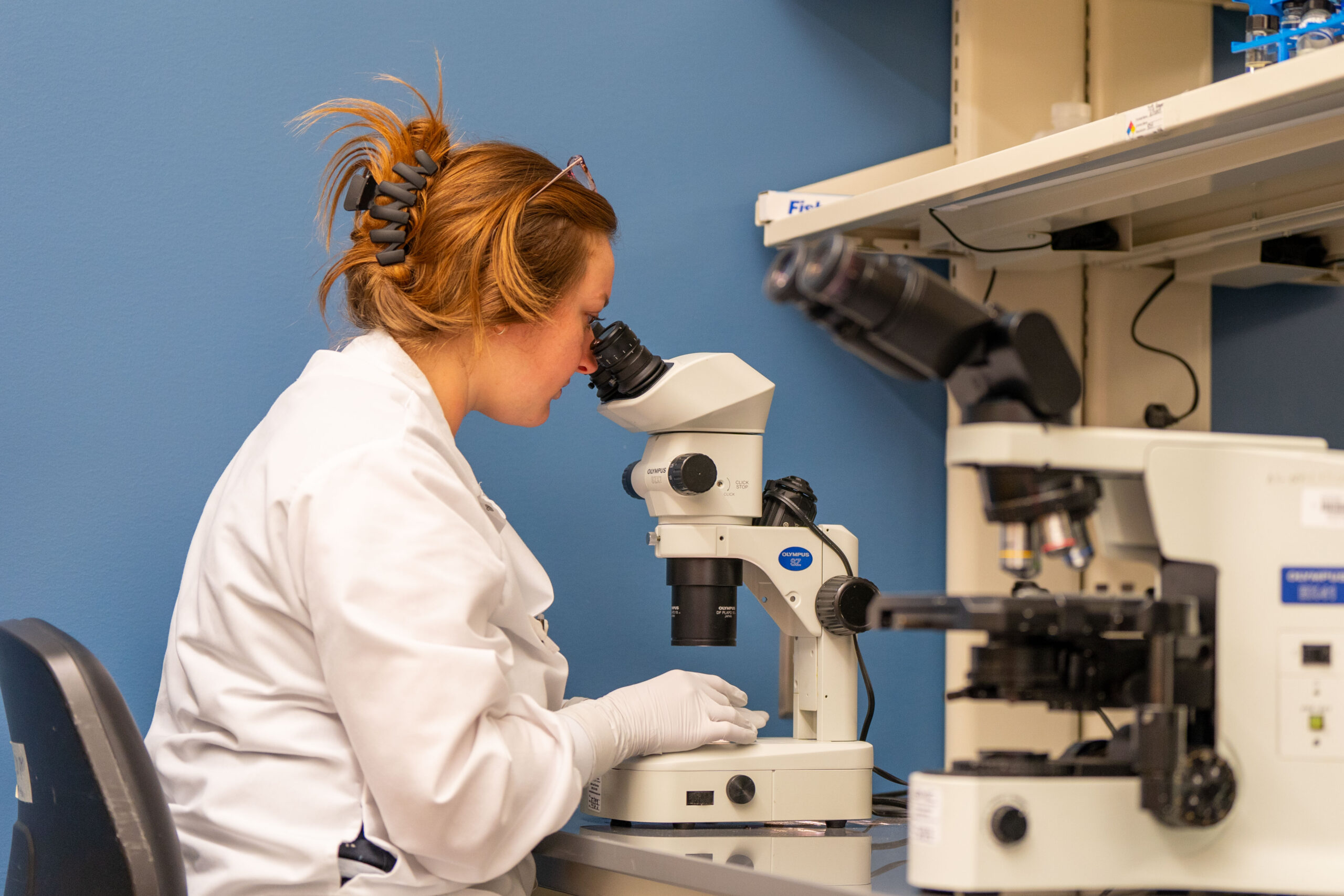
Comparison of the gene expression profile of in vitro-produced equine embryos after Intracytoplasmic Sperm injection (ICSI) using cryopreserved non-sorted or sex-sorted sperm
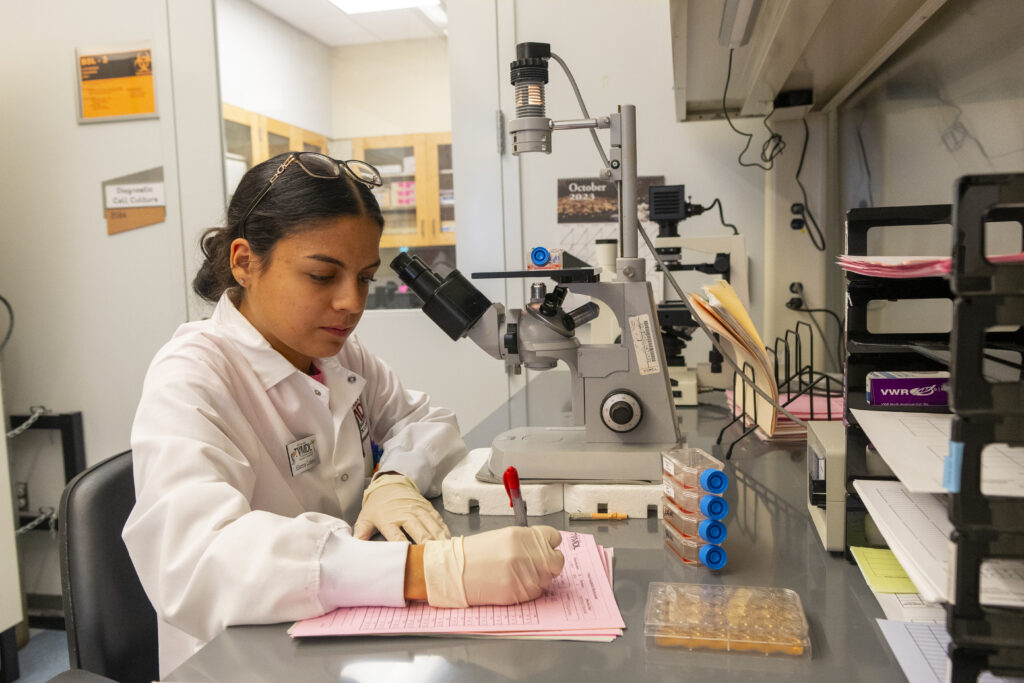
Research and Researchers at TAMU Scholars
For a comprehensive look at published equine science research across AgriLife Research, the agencies of Texas A&M AgriLife and The Texas A&M University System — as well as information on equine research faculty — visit TAMU Scholars online.